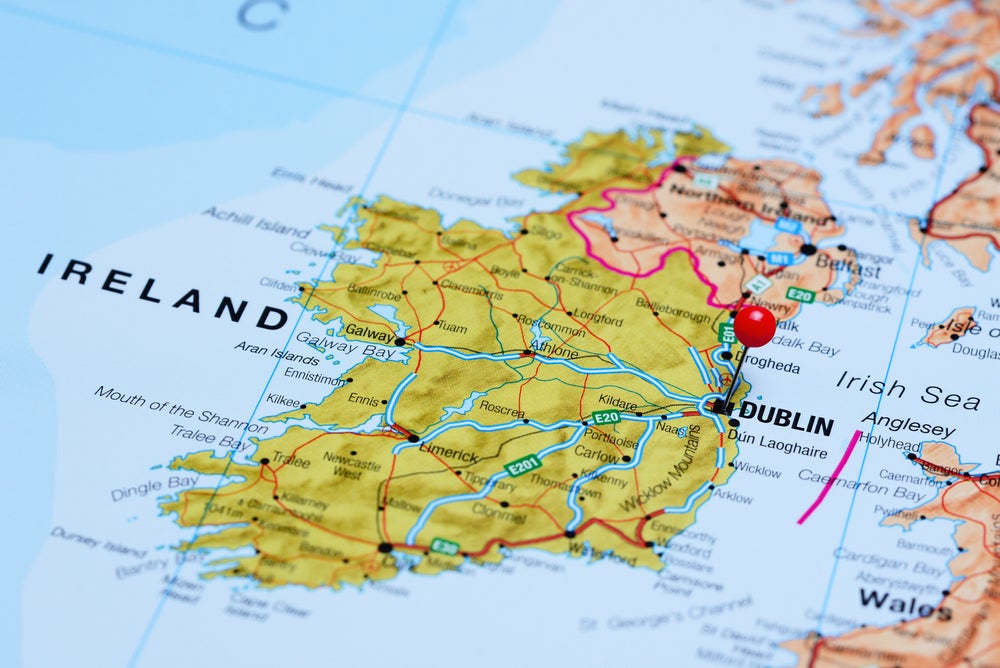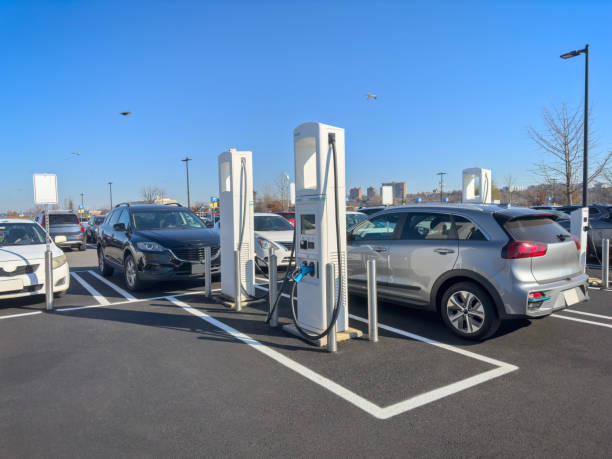
With the future of Brexit as uncertain as ever, Ireland’s motor finance sector is turning inward in the search for new opportunities. Chris Farnell speaks to key figures as they set out their plans.
In the summer of 2018, when Motor Finance talked to leading professionals in the Irish motor finance sector, the atmosphere was one of uncertainty and disbelief.
“With Brexit, nobody thought it could happen; nobody thought it would actually happen. It came as a surprise to everyone and made the market more challenging,” said
Derek McDermott, managing director at Bank of Ireland Finance.
“There’s no doubt that the most significant development to emerge for the Irish economy recently was the outcome of the 2016 Brexit referendum,” said Robert Murray, area sales and portfolio manager at First Citizen Finance, adding: “In this current period, during which time the necessary trade arrangements are being finalised, variables such as exchange rates, stock market returns, producer and consumer sentiment continue to display some volatility.”
Whomever Motor Finance spoke to, the one thing people seemed certain about was uncertainty. With less than a year to go until the UK left the EU, there was still no clue as to what form that exit might take.
“Theresa May cannot tell you what is going to happen regarding border solutions, so it’s a little difficult for me to express an opinion in the absence of clarity surrounding these complex issues,” First Auto Finance managing director Frank Donnellan told Motor Finance.
How well do you really know your competitors?
Access the most comprehensive Company Profiles on the market, powered by GlobalData. Save hours of research. Gain competitive edge.

Thank you!
Your download email will arrive shortly
Not ready to buy yet? Download a free sample
We are confident about the unique quality of our Company Profiles. However, we want you to make the most beneficial decision for your business, so we offer a free sample that you can download by submitting the below form
By GlobalDataCONTINUING UNCERTAINTY
Ireland is one of the smaller markets in Europe, and once Brexit is completed it will be the only country in the EU where people drive on the left-hand side of the road.
It is also a fast-paced, extremely competitive market, with far more independent operators than the more consolidated UK market.
Its close relationship with the UK, especially through the import market, has caused Brexit to cast a shadow over the entire sector.
While, for the most part, financiers have been worried about the effect Brexit might have on the motor finance sector, as time has gone on, many in the industry have become as frustrated with the ongoing uncertainty around Brexit as they have with any of its potential consequences.
“The details of any border solutions are unclear. Looking out, a change of VAT could impact imports, but we are in the realms of speculation at this stage,” noted Donal Murphy, managing director of Bluestone Ireland, in 2018.
Over six months later, with barely three months left until the deadline, Murphy is not convinced that things are any clearer. “There is no further clarity on the impact of Brexit at this stage,” he says.
Murphy is willing to suggest some potential best- and worst-case scenarios, however. He tells Motor Finance: “Demand should remain strong, as other economic indicators are positive. However, the uncertainty around imports and the availability of used cars for the market will no doubt impact on valuations, and they may fluctuate greatly until a norm is established.”
Meanwhile, Chris Hanlon, managing director of First Citizen Finance, is willing to make some estimates about how the market may perform once Brexit is concluded, based on how it has affected the market so far.
“The direct impact of Brexit has been a weakness in sterling and a direct increase in the level of imports,” he says.
“While we don’t have full clarity yet on the outcome of Brexit, it seems that when Britain leaves the EU, the current high level of used car imports will start to decrease.
“The general uncertainty created by Brexit has weighed heavily on the market here, as some consumers defer their decision to purchase. This is evident in the level of gross household debt, which has been steadily declining since 2008. Earlier this year it stood at €140bn, down from €204bn in 2008. Once Brexit happens, our expectation is that
consumers will be more comfortable making decisions regarding significant purchases again, including motor vehicles.”
CONTINUING TRENDS
Since the summer, the Irish market has continued largely along the same trend lines as before, with imports showing growth while new car sales decrease. “New car registrations continue on a downward trend while imports continue to increase,” Murphy says. “However, the level of increases in imports has slowed somewhat recently.”
This trend continues the phenomenon seen since Brexit, with consumer confidence on a high but new car registrations going down year-on-year: 2017 saw 131,500 new car registrations, according to Murray, down from 147,000 units in 2016, and predictions are worse for 2018’s final figures.
The Irish car finance sector has undergone a period of impressive recovery in the past four years, but ‘the Brexit effect’ seems to be levelling that out as repeated nosedives by the pound have had a knock-on effect on the new and second-hand car markets.
However, although imports from the UK have historically been important to Irish car finance, they are by no means the only game in town, and talking to leaders in the sector it is clear that there is much to be hopeful about.
Hanlon, in particular, is optimistic about how the market is performing beyond the continuing drama around Brexit.
“Notwithstanding Brexit, all key economic metrics – unemployment 5.7%, GDP growth 8.2%, low interest rates – remain at very favourable levels,” he says.
“The last quarter is a seasonally quiet time of year in Ireland, and since September we’ve seen new car registrations down by circa 15% year-on-year.”
But it is not long before concerns about Brexit begin to rear their ugly head again, with the weak sterling and an uncertain future denting an otherwise strong Irish economy.
“While the fundamentals in the Irish economy remain strong, the big talking point is still the uncertainty over Brexit and the high level of used imports from the UK that is having a negative effect on the retail of new and used cars,” Hanlon says.
“The weak sterling has contributed significantly to this, but the high level of imports is a distortion to the market that is set to decrease post March 2019 when Britain leaves the EU.”
Indeed, for Hanlon it is the uncertainty surrounding Brexit that is a bigger hazard for the market than anything Brexit could do itself.
Once the form Brexit takes – whatever that might be – has been decided, financial firms will at least be able to build a strategy around it. The continuing uncertainty on the issue is helping nobody.
TURNING TO STRENGTHS
Hanlon believes the worst-case scenario for Brexit is the “prolongation of uncertainty”. The best-case scenario is that once that uncertainty is removed, Ireland will be able to move forward and focus on the considerable strengths of its own markets and economy.
Indeed, Close Brothers, which operates in the Republic of Ireland through First Auto Finance, reported in September that Ireland’s business made up 26% of the lender’s motor finance book, an improvement on the 23% it reported during the previous year.
Finance Ireland also reported that its loan book grew by 58% over the last year to €668m (£591m), competing in sectors that included motor finance alongside SMEs, agrifinance and commercial lending.
The Irish market still possesses all the qualities that make it such a successful, fastmoving and competitive place to do business, and those qualities do not just disappear because the UK leaves the EU.
Indeed, talking to people in the sector, the impression is that while the cheap imports the falling pound has made possible have been a useful temporary market blip, Ireland’s motor finance sector is, on the whole, ready to move forward independently from the UK. “We expect there to be less dependence on the importation of used cars from the UK,” Hanlon says.
“This allows the Irish car market to more fully exploit the opportunities being presented by the positive domestic economic landscape that exists here at the moment.”
Hanlon speaks from experience, having seen his own company, First Citizen, grow impressively thanks to the car finance sector in Ireland.
Car financing, combined with other sectors, has driven First Citizen’s loan book to grow to approximately €300m – double what it was only two years ago.
Murphy agrees that once Brexit takes its final form, new opportunities will open up for Ireland’s motor finance sector.
Indeed, as UK businesses and workers look for ways to escape the worst consequences of their country’s exit from the EU, Ireland is likely to become an appealing new market.
“Some UK businesses have sought to establish an EU base in Ireland, and there could be more of this,” Murphy speculates.
“It could bring a new workforce into the marketplace with no previous credit record in Ireland.” Bluestone itself is preparing for a future rife with opportunity, having just raised €50m in its fifth asset-backed security issue in Ireland, bringing the company’s total finance advanced to date to €167m.
According to Bluestone, this latest capital was raised through listed securities backed by 3,631 loan agreements originated by Bluestone during 2018, secured through a mix of new and used motor vehicles and light commercial vehicles.
Designated activity company Topaz Asset Finance 2018-B1 made the securitisation. Hanlon also believes Ireland will look like something of a land of opportunity after Brexit, and that once Brexit has been decided, Ireland will best placed to look at how to exploit its own considerable strengths.
“The biggest opportunities lie within our own offering to the marketplace – all the time strengthening our customer focus and value proposition, and delivering national distribution. This is all underpinned by a robust platform.
“Increased mobility solutions and emerging technologies will present exciting opportunities for stakeholders in the motor industry,” Hanlon continues.
“Over the past few weeks we have completed our second auto securitisation, raising more than €140m in a bond issue secured on our auto loan book. This deal is in addition to our existing Deutsche Bank funding, and positions us well as we enter 2019.”
THE HOME FRONT
Talking to both Murphy and Hanlon, it seems that while Brexit is a nuisance, it is far from the biggest challenge facing the industry. Asked about the biggest challenges facing the Irish Car Finance sector in 2019, Murphy does not mention Brexit.
Instead, he predicts: “We believe the main issue for the sector will be valuations of vehicles.” It is an old problem, and one to which Bluestone Asset Finance is continuing to respond by valuing every car individually, using a system that keeps each car’s value up to date using complex, state-of-the-art algorithms that derive vehicle values from recent transactions within the market.
By backing those values up with a minimum 15% deposit on every loan, Bluestone is able to find a comfortable loan-to-value ratio for each vehicle. It is a prudent approach that has served the company well until now, and reflects the efforts by the Irish motor finance market to reduce the uncertainty Brexit has introduced to all facets of the market.
Hanlon is also keen to move past Brexit to talk about more pressing and relevant issues to the Irish market, saying: “Besides Brexit, ensuring that the customer experience is at all times a positive one will be key for us – all the time ensuring that we exploit the full potential in emerging technologies.”
Hanlon adds: “Forty percent of the national car parc is currently Euro 4 standard or older. The challenge for all stakeholders in the motor industry is to replace those older vehicles with newer, more efficient vehicles. We are ready to facilitate this now and beyond Brexit.”
And that is, ultimately, the point: in the UK, across all business sectors – not just motor finance – it can seem like Brexit is the only thing anyone will talk about, with everybody’s ideas for the future hinging around exactly what is going to happen on 29 March 2019.
However, for the rest of the world, Brexit is still something that is happening only in the UK, and while we might worry about the consequences, businesses elsewhere are already making plans for how they will go forward on 30 March, with or without the UK.







